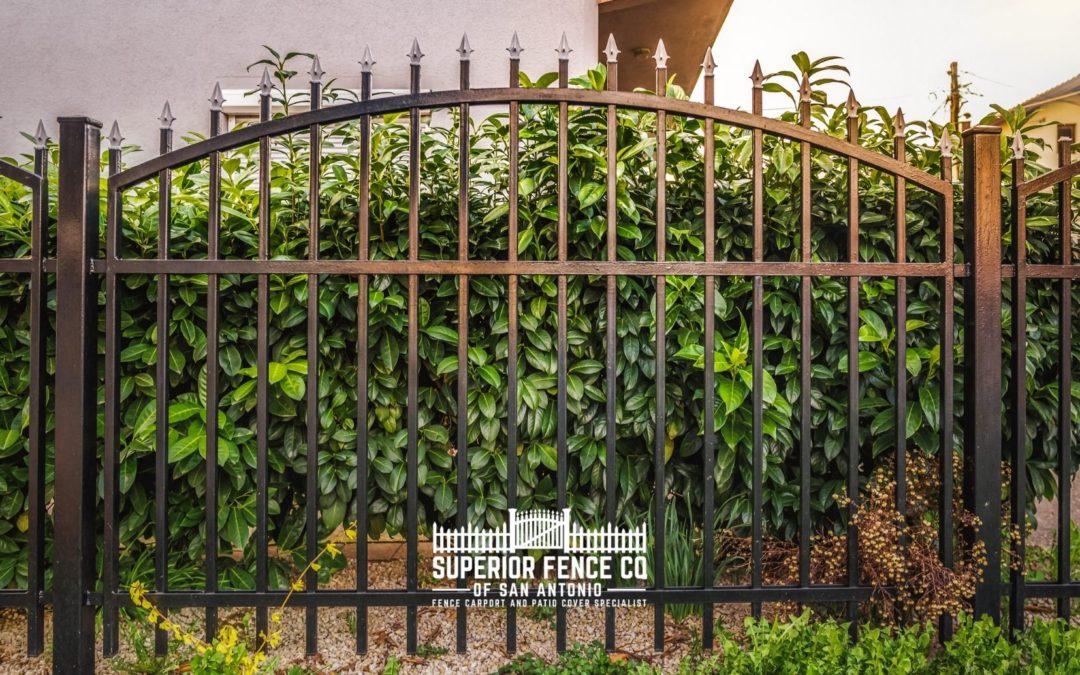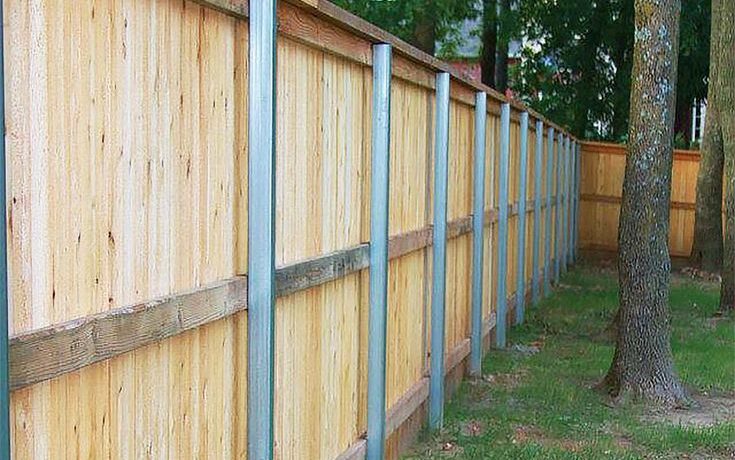All Categories
Featured
What Types of Fencing Products Are Offered for Residential and Commercial Projects?

When intending to set up a fence, choosing the best material is critical for meeting the visual, functional, and financial requirements of your building. Whether for industrial or domestic use, contemporary secure fencing alternatives provide a range of selections to match details needs. Here's an extensive check out the most common fence materials readily available today.
- Wood Fencing. Wood is a traditional selection for homeowners looking for appeal and adaptability. It works well for privacy fencings, decorative designs, and limit noting.
Trick Advantages of Wood Fencing:
Visual Versatility: Can be crafted right into various designs, including picket, board-on-board, and lattice designs. Cost-efficient: Offers price for several projects, particularly smaller property ones. Personalized: Quickly painted or stained to match a home's outside. Disadvantages: Needs regular upkeep, such as sealing and tarnishing, to safeguard versus weathering and insects.
- Vinyl Fence. Vinyl secure fencing has expanded in popularity because of its smooth appearance and marginal upkeep requirements. It's a fantastic option for both property and commercial areas.
Benefits:
Resilient and sturdy: Plastic stands up to climate damage, parasites, and fading. Easy Maintenance: A fast wash with soap and water keeps it looking immaculate. Trendy Alternatives: Can be found in multiple colors and structures, some mimicking all-natural wood. Factors to consider: The first cost is greater, but the lasting savings on upkeep can make it a sensible investment.
- Chain-Link Fencing. Chain-link fencing is a functional service for safeguarding large locations, often made use of in commercial, industrial, and leisure homes.
Benefits:
Affordability: One of one of the most cost-effective fencing choices. Resilience: Takes on damage, also in tough atmospheres. Visibility: Gives a clear line of view while maintaining safety and security. Drawbacks: Restricted visual appeal and personal privacy unless incorporated with slats or foliage.
- Aluminum Fencing. Light weight aluminum offers a sophisticated appearance without compromising on toughness. It's particularly prominent for decorative or security functions.
Key Features:
Rust-Free: Suitable for damp climates or swimming pool rooms. Low Maintenance: Needs very little upkeep contrasted to iron or wood. Stylish Appearance: Commonly made use of to mimic functioned iron without the hefty price tag. Factors to consider: Not as strong as steel, making it much less appropriate for high-security demands.
- Wrought Iron Fence. Understood for its classic sophistication and durability, functioned iron is a preferred for high end residential or commercial properties.

Benefits:
Strength and Safety: Difficult to break or bend, making it suitable for high-security applications. Adjustable Designs: Can be shaped right into detailed patterns for an unique appearance. Longevity: With appropriate maintenance, wrought iron can last for years. Drawbacks: Requires routine upkeep to stop rust and is amongst the a lot more pricey fence alternatives.
- Compound Fencing. Compound fences incorporate timber fibers and plastic for a durable, environment-friendly choice.
Benefits:
Environmentally Friendly: Typically made from recycled materials. Reduced Upkeep: Immune to rot, bugs, and bending. All-natural Look: Mimics the look of wood without the upkeep. Drawbacks: Greater ahead of time price contrasted to conventional wood fencing.
- Bamboo Fencing. Bamboo is a lasting and trendy option, particularly for properties looking for a natural aesthetic.
Advantages:
Eco-Friendly: Bamboo is sustainable and eco-friendly. Distinct Look: Adds a exotic or Zen-inspired touch. Cost-efficient: Frequently cheaper than woods. Drawbacks: Less sturdy in extreme climates or versus long term exposure to moisture.
- Steel Secure fencing. Steel fencing supplies unequaled toughness, making it a go-to choice for industrial and commercial requirements.
Functions:
Durable Stamina: Takes care of significant impacts and climate obstacles. Adjustable Coatings: Powder coating boosts its look and durability. Safety and security: Suitable for areas calling for boosted protection. Factors to consider: Higher expense and weight make it less suitable for small-scale projects.
- Stonework or Rock Fencing. For residential properties looking for a very resilient and long-term alternative, rock or stonework fencing is a costs choice.
Advantages:
Ultimate Sturdiness: Withstands extreme weather condition and lasts for decades. Soundproofing: Blocks noise, making it excellent for city areas. Luxury Aesthetic: Uses a high end look that matches premium homes. Downsides: High installment costs and minimal versatility in layout changes.
Just How to Choose the Right Product. When selecting a fence product, consider the following elements:
Purpose: Do you need safety, personal privacy, or decorative appeal? Spending plan: Some products, like wood and chain-link, are affordable, while wrought iron and stone come with a costs. Upkeep: Materials like plastic and aluminum are much easier to keep, while wood and wrought iron requirement routine care. Environment: Some materials, such as bamboo or unattended timber, are less appropriate for rough climate condition. Conclusion. Fencing products today supply a vast range of alternatives to suit different spending plans, features, and styles. Whether you focus on resilience, aesthetic appeals, or eco-friendliness, there's a product that will certainly fit your needs. By working with a specialist secure fencing specialist, you can explore these options thorough and make sure a perfect installment for your industrial or residential task.
Latest Posts
Specialist Residential Roof Covering Solutions You Can Trust Fund
Published May 23, 25
1 min read
Expert Residential Roof Covering Solutions You Can Count On
Published May 23, 25
1 min read
Explore Reduce Expenses on Car Maintenance with Montclare Auto Repair’s Special Deals
Published May 23, 25
1 min read
More
Latest Posts
Specialist Residential Roof Covering Solutions You Can Trust Fund
Published May 23, 25
1 min read
Expert Residential Roof Covering Solutions You Can Count On
Published May 23, 25
1 min read
Explore Reduce Expenses on Car Maintenance with Montclare Auto Repair’s Special Deals
Published May 23, 25
1 min read